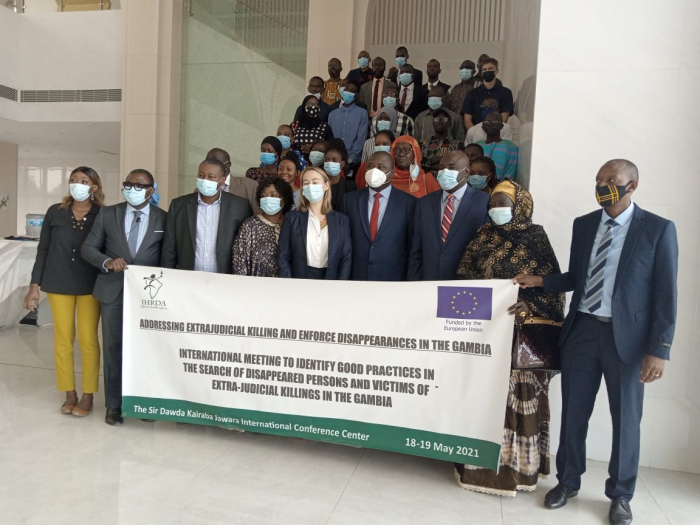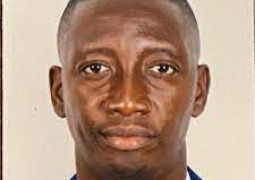
“TRRC has done a great job in putting issues at the forefront. However, at the end of the day, we should try as much as we can to remind the government and the TRRC of its responsibility. Maybe, if the TRRC recommendations are not taken seriously, some of us have already documented some cases and are ready to go to court,” he said.
Mr. Sowe was speaking yesterday during the opening of an international conference on Identifying Good Practices in Search of Disappeared Persons and Victims of Extra-Judicial Killings in The Gambia. The convergence organised by IHRDA in partnership with Trial International and Swiss peace was held at the Sir Dawda Kairaba Jawara International Conference Center.
Officials said the forum will enable participants to brainstorm on enforced disappearances and extra-judicial killings, with focus on the Gambian context, shared experience on good practices in the search for the disappeared, providing related remedies and preventing prevalence among others.
According to him, human rights abuses on a very massive scale really happened in the country during the former regime. “We all talk about the last 22 years especially on right violations among others. I really don’t have to go through that. However, now there are significant improvements, although, I am not saying there are no right violations, but there is significant improvement.”
Gaye Sowe added: “As CSOs, we’re all pushing for accountability and this is why this meeting is important in the sense that we will be reminding the government of its responsibility to make sure it get to the bottom line of all cases without exceptions with regard to all those who disappeared, or extra judicially killed.”
Enya Braun, Development Cooperation/International Aid Governance at the European Union (EU) Delegation to The Gambia said: “From Mondays to Thursdays, sometimes for five or six hours, wherever you go in the country, the hearings boom out of the TV and radios. In the gele-geles, taxi or in offices, you regularly hear people ask each other, usually with incredulity: "Did you hear so and so's testimony?" What the hearings have revealed, and continue to reveal, is the unpeeling of a layer of barely believable horror.”
For the victims and their families, she added, the process is far from over. “They will want to see a decisive follow-up to the Commission’s eventual recommendations in terms of prosecutions, yes, but let’s not forget importantly, reparations, healing, memorialisation, and above all -safeguards against risk of recurrence.”
“As long as the process of transitional justice–namely the TRRC but also this project –are not complete, the country remains at risk of slipping back into an authoritarian regime rife with human rights abuses. Many of the civil servants and security service personnel who were “adversely mentioned in the investigations continue to hold the same positions.”
Reforming the security services to become fit for purpose in a democracy, including through vetting and rightsizing, she further claimed, remain crucial.
“As of yet, no strategy is in place around follow-up to the TRRC recommendations, in particular when it comes to delivering justice to the people of The Gambia – including the options of prosecuting perpetrators, receiving adequate
reparations and, importantly, a process of memorialisation.”
Meanwhile, Dawda Jallow, the attorney general and minister for Justice said: “At the pain of sounding like a broken record, The Gambia’s history and experience with enforced disappearance and extra judicial killings is well documented.”
“As I have had to state, we have had some success on this journey. It’s important that we share what works and build on it for better results. You will be pleased to note that my ministry has completed its first ever report to the OHCHR Committee on enforced disappearance.”



